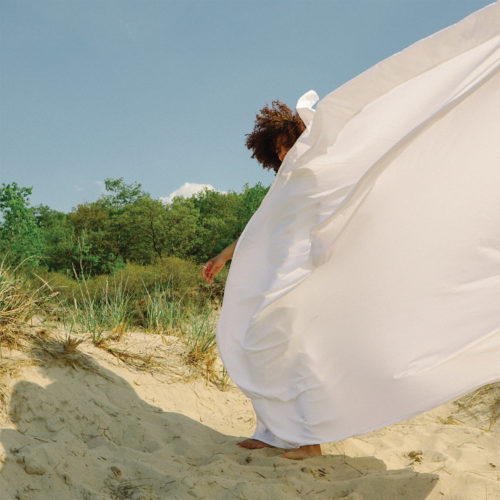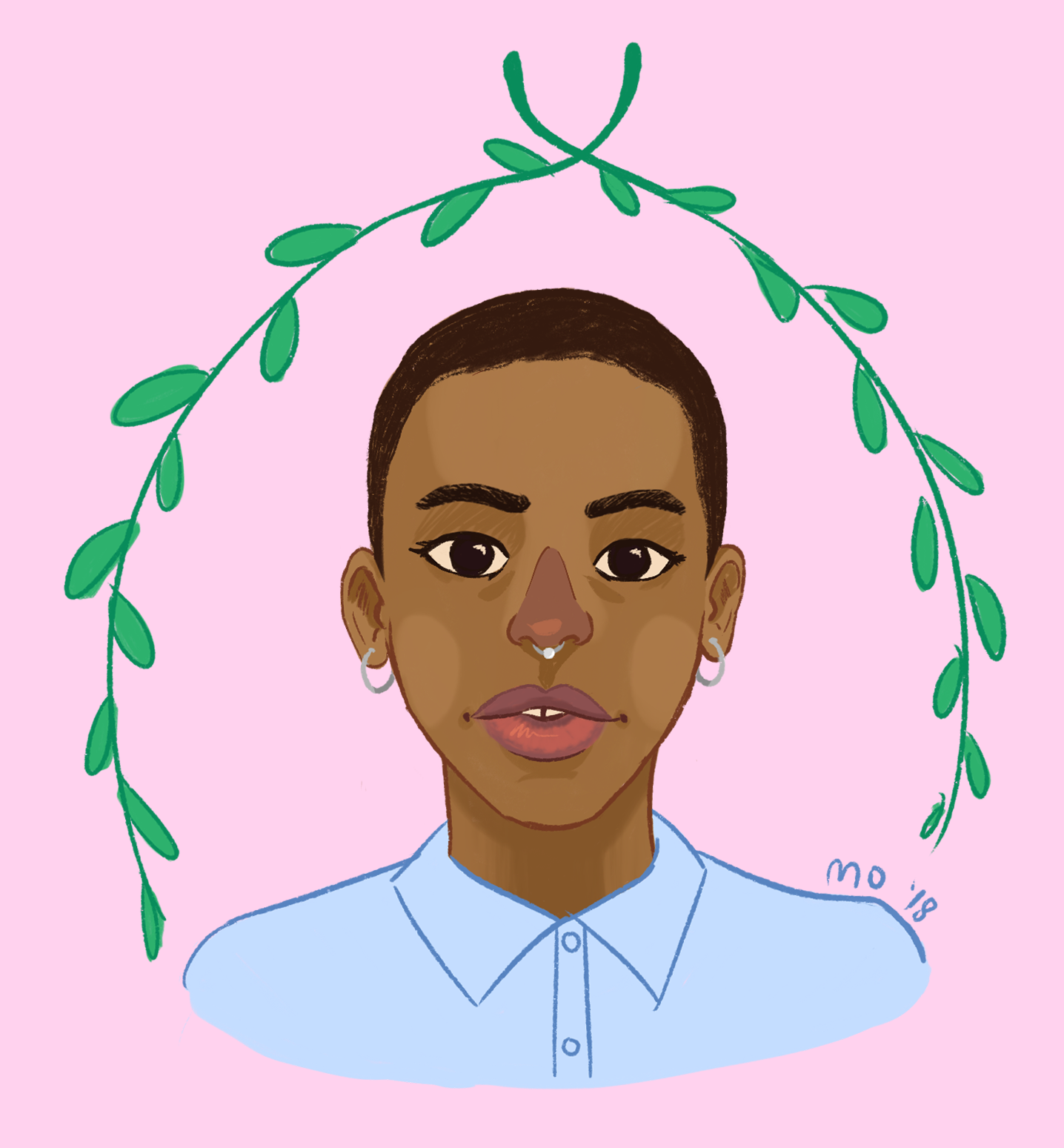In her debut album Alone at Last, Tasha—poet, activist, and singer-songwriter—digs into themes of music as healing and radical softness as a political act; the sweatshirts she crafted to sell along with the album are embroidered with “I love myself and hate police.” In an interview with the Weekly, Tasha describes her journey of creating Alone at Last, from self-releasing the Divine Love EP in 2016, to signing with Father/Daughter Records last year, to her debut release this October. Listen to a full version of this interview that aired on SSW Radio, the Weekly’s radio show and podcast:
You’ve spoken in other interviews and written and sung about organizing with the Black Youth Project (BYP100) and #NoCopAcademy. Could you talk a little bit about how that work has influenced this album?
I didn’t know that I wanted to be a musician when I came back to Chicago after [college] and got introduced to the folks at BYP100. That wasn’t a part of my goals I guess, or my dream for myself. But I think that there must have been something that happened as I started to recalibrate my relationship to the world and to social justice. There was this steady shift over time, but I think that year in particular—as I started to learn so many new things about my identity, or what it means in the context of our social political world. I think that triggered this new need to create in a new way. I always loved music and singing and playing instruments—that was always something I loved to do. But I think I really started to feel like I had an important story to tell through being politicized in that way with those folks.

One of the many things I love about your music and what you do is your insistence on enoughness and abundance. I find—even in activist spaces—that can be really hard to come by or really hard to maintain. What are some ways that you cultivate that in your own life? What are some sources of abundance for you?
I think it took me a while to realize the things that I could give to myself that I didn’t need to get from other people. Some of that is just growth, but I think a lot of that is what it means to be a Black woman in the world when the world is constantly asking so much of you, whether you realize it or not. That’s work that has to be done; figuring out how to not live your life [by] giving to other people, but [by] giving to yourself. That took me a while. Music was honestly a big part of that. Just deciding that I would be brave enough to re-learn how to play guitar and try writing songs and giving myself the space to learn that and figure it out and not be worried about what other people would think of what I was doing. That really gave me so much space to take care and just do what I needed to do.
What would be some specific people or poets or musicians who influenced this softness that you write about in your songs?
Where did I learn that softness from? There are a lot of artists who I listen to who I feel like have informed me musically. But I can’t think of anyone who emulates the soft things that I try to do. I think that’s maybe why I did it, or why I started doing it, because it was something that I couldn’t find or wasn’t listening to, but I needed.
Can you talk a little bit about how your creative process and how the production process for this album—Alone at Last—was different from the Divine Love EP?
That little EP. Bless her heart. It just came out of a whim. I didn’t really know that many people who made music; I didn’t really know any producers or anything. My senior year of college, I remember [a college acquaintance] handed out little CDs he made of his beats. So the next year, he was still in school, but after I had graduated I hit him up about sending me some beats so I could write some songs. And he did and I wrote them. I wrote these three songs in a couple months, and my brother—who is a poet and a rapper and musician—he connected me with an engineer in a studio, and so I just recorded them over the beats as is.
I had a couple of friends who helped me with the intro and outro that are on [Divine Love]. My friend Timmy Rose actually, he played piano on the outro and he’s a big organizer in Chicago, he leads alternatives to calling the police trainings all the time. And he’s a really amazing person. So it all happened in a few months and I put it out just because. And that was, 2016. The first show I ever did in Chicago was that spring, which is just wild to think about. I started and then I was like: oh, this is what I want to do. This is the thing.
I started to take it more seriously or whatever. I don’t know what that really means. I was able to commit myself creatively to developing that voice. And then I bought that guitar and started playing more and writing a bunch more. That was probably a whole year of just playing so many shows. I was playing all across the city, all the time. Then I left my full time job and quite quickly started talking with the folks at Father/Daughter Records after meeting them through a Pitchfork after-show I did last summer, opening for Vagabon, who put her record out with them. I was just thinking about what my future would look like, and then decided I was going to write this album [Alone at Last] and put it out with Father/Daughter.
So it was a much longer process putting this one together. A lot of these songs have been written for a long time, but I just never got around to recording them. I think I knew that they all belonged together and I just needed to fill in some places. This April, I went to my grandpa’s house in Wisconsin and recorded demos for every song by myself in this little room and wrote “Kind of Love” and “Something About This Girl” there. Some of those recordings are on the final record actually, some of the vocal tracks I did there, which I love. So I guess just logistically, this [record] was a much longer time. But it was way more intentional. Obviously, whether you like it or not, there’s going to be a shift in the way you create when nobody knows who you are [versus] when maybe a very small amount of people know who you are. I do my very best not to think about that at all, and I think I do a pretty good job of that. But even for myself, I feel like I didn’t really know who I was, and now I kind of do know who I am. So even that internal shift occurred in that in-between time.
These are all songs that I needed over the last year and a half. These are things that I needed and I knew it because every time I played them I could feel it. I feel so blessed because I feel really good playing all of these songs.That is such a clear indicator to me that I shouldn’t be doing anything else, because the things that I write make me feel so, so good. And so full. I know that I’m doing this for myself, but I know it must be doing something good for other people too, because it’s too big to be just contained in me.
Janaya Crevier is a contributor to the Weekly. A geographer by training, she spends her time learning about data feminism and taking long walks across the South Side. Find her on Twitter at @JanayaCrevier. Her most recent piece for the Weekly was an interview with Clyde Moreau about the inaugural Decibel Crawl Fest.



Excellent interview!